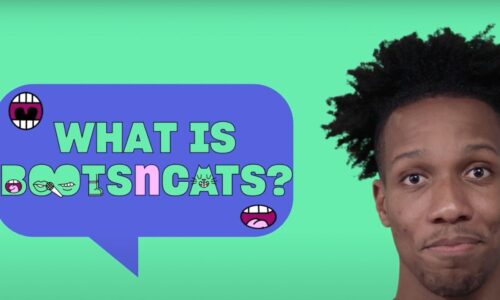[W]hen it comes to stressing the importance of mental health in universities, American news outlets are infamous for being reactive instead of proactive. It is almost always after a tragic event occurs that the media decides to report on the dangers of undetected mental illness. Depression has been defined by the National Institute of Mental Health as “a common but serious mental illness typically marked by sad or anxious feelings.” Feeling worthless, inadequate and sudden weight loss are some of the known symptoms.
Depression widely affects college students and while university students and depression have received some media attention, the lackadaisical afterthought news coverage on minority students and their struggle is alarming.
| https://www.youtube.com/watch?v=kSzPG0xMpLM |
| J. Cole discusses how the pressures of the music business, success and even college, helped play into his battle with depression. He’s not alone when it comes to the issue of mental health. Stigmas and insecurities prevent many from seeking proper treatment, Licensed therapist Ciara L. Hill told CollegeHipHop.com. |
J. Cole attempted to bring publicity to his fight with depression when he recorded his album Born Sinner, but it was a tragic incident that thrust the issue into national headlines.
 |
| Florida State University Shooter Myron May was in dire need of psychological help before he shot three students at Florida State University. |
Tragically, the issue was brought to light on November 20, when Florida State University alumni Myron May showed up on campus with a .380 handgun and shot and wounded three students, before being killed by police.
The former prosecutor shot three students in the Strozie Library after suffering what Tallahassee Police Department Chief Michael DeLeo described as a “personal crisis” relating to the state of May’s health. He had started to suffer from severe depression and paranoia and had been turned away from three different health care facilities because he didn’t qualify for treatment.
In 2009 NBCNews.com published a story by the Associated Press with the headline “4 in 10 College Kids Are Depressed.” The AP writer reported, “Depressive disorders afflict an estimated 9.5 percent of adult Americans in a given year, or about 20.9 million people. The median age for onset is 30.”
In a published research article titled “Race and Ethnic Difference in Depressed Mood Following the Transition from High School” by Susan Gore and Robert H. Aseltine, Jr., the authors highlight the distinction of depression and mental illnesses in minority young adults, versus white young adults. The study attributes the differences to the students’ backgrounds and socioeconomic make-up, which in turn has an adverse effect on the lives of students during the changeover from high school to college.
 |
| African-Americans tend to rely on family, religious and social communities for emotional support rather than turning to health care professionals, even though this may at times be necessary. |
Asian American Seung-Hui Cho’s horrific shooting attack in 2007 on his fellow students and faculty members at Virginia Tech was described by CNN as “the deadliest shooting rampage in U.S. history.” In December of 2005 after making suicidal remarks to roommates, Cho was ordered by a judge to seek outpatient care.
Delaware State University Sophomore and Psychology major Tevin Smith not only studies depression and its’ symptoms, he knows this mental illness first-hand, because he has lived it.
“The media sees depression among Blacks to be a normal thing because the majority of African-Americans are middle to lower-class citizens,” Tevin Smith told CollegeHipHop.com. “But when other races go through depression, it is blown up [by the media].”
After speaking with his physician about his own bout with depression, Smith found spiritual solace as his coping mechanism. “The way I dealt with depression was turning to God with all my issues,” said Smith. “I began to pray more and stopped trying to do everything on my own.”
Licensed clinical professional counselor, Nikki Chapple said that depression in minority students goes undetected because it is not screened for like other conditions “such as high blood pressure or diabetes.”
“Every student should be educated about mental illnesses and what to do about it,” Chapple added. “It should be a requirement in helping to identify their triggers for depression and developing coping skills, decreasing the cases of campus violence and death.”
Licensed therapist Ciara L. Hill believes insecurities and stigmas have been a major factor in why students do not seek mental health prior to a crisis or mental breakdown, even more so within the African-American community.
“In the past, many African-Americans felt the need to handle these issues ‘on their own’ because they didn’t want to be looked as ‘crazy’,” said Hill. “However, within recent years African-Americans have been making positive strides [regarding mental illness]. Working as a licensed therapist, I have had the opportunity to see a major increase in black people of all ages seeking services. I have had clients say the only way they would come to counseling is if they had an African-American therapist’ because they feel a black therapist would better understand their various cultural issues,” said Hill.
| Produced By Best Psychology Degrees |




